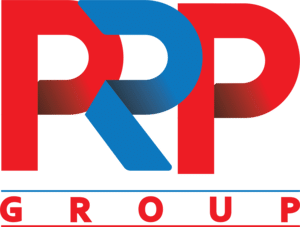Why Brands Trust PR Professionals When Crisis Strikes

“When written in Chinese, the word ‘crisis’ is composed of two characters – one represents danger, and the other, opportunity,” said John F. Kennedy. It’s a powerful reminder that even in moments of turmoil, there’s a chance for transformation. In the high-stakes world of brand management, crises are not just possible – they’re inevitable. Whether it’s a product recall, a public scandal, or a social media misstep, a crisis can quickly erode consumer confidence, tarnish a reputation, and negatively impact business performance. In such moments, brands turn to public relations professionals – not just for damage control but to find the opportunity hidden in adversity.
Crises today can erupt from almost any source: a defective product, a controversial statement, or an unexpected data breach. Thanks to the speed of digital media, what starts as a local issue can become a global headline in hours. A study by the Institute for Public Relations found that 62% of consumers believe a brand’s response to a crisis significantly impacts their level of trust. In such situations, PR professionals play a crucial role in managing the narrative, calming public sentiment, and guiding the brand through the storm.
PR experts are much more than spokespersons – they are strategic communicators. They assess the situation, identify the key stakeholders, and craft messages that are timely, accurate, and empathetic. Their goal is not just to communicate but to rebuild credibility. Take, for instance, a leading airline that faced international outrage over the mistreatment of passengers. The PR team responded with a structured communication plan: acknowledging the issue, issuing public apologies, and outlining steps to prevent recurrence. Over time, this deliberate strategy helped the airline regain public trust.
A key component of crisis management is media handling. The media can be a double-edged sword – amplifying a crisis or aiding in its resolution. PR professionals act as gatekeepers, ensuring that accurate and contextual information reaches the public. They manage press interactions, counter misinformation, and shape the brand’s narrative with authority and credibility. Their strong relationships with journalists and influencers help ensure the brand’s perspective is heard and not lost amid speculation or outrage.
Timing is everything in crisis response. Consumers today expect rapid reactions – Edelman’s 2024 Trust Barometer found that 78% of people expect a brand to respond to a crisis within 24 hours. PR professionals are trained for this kind of pressure. They monitor news and social media in real-time, assess sentiment, and adjust messaging swiftly. Importantly, they strike a balance between speed and strategy, ensuring that the rush to respond doesn’t lead to poorly worded statements or half-measures.
Crisis communication must also align internal and external messaging to ensure consistency and coherence. PR professionals ensure that not just customers but also employees, partners, and investors receive clear, consistent updates. This cohesive approach prevents confusion, maintains morale, and supports leadership. When employees hear about a crisis from social media before their own management, it signals disorganization—something PR professionals work hard to prevent.
While the initial response may dominate headlines, the long-term recovery is where PR professionals truly prove their value. They conduct post-crisis evaluations, assess the reputational damage, and design campaigns to rebuild goodwill. This might include corporate social responsibility initiatives, enhanced policies, or outreach programs. The focus shifts from survival to renewed strength, with PR professionals at the helm.
How PR Professionals (PRP) and PR Agencies Handle a Crisis
At PR Professionals (PRP), Issues and Crisis Communication Management is approached with a blend of agility, strategic insight, and a commitment to protecting a brand’s integrity. The crisis communication experts at PRP are equipped to handle a spectrum of scenarios, from product recalls and legal issues to reputation threats and unforeseen challenges.
PRP offers a variety of services. Crisis Preparedness and Planning involves the proactive identification of potential risks and vulnerabilities, along with the development of comprehensive crisis communication plans tailored to an organization. For emerging issues, Rapid Response Strategies ensure immediate action to mitigate reputational risks, with crisis communication strategies designed for swift and effective damage control.
During a crisis, Media Relations is managed through strategic engagement with media outlets to control the narrative, ensuring transparent and timely communication to address stakeholder concerns. Internal Communication focuses on maintaining consistent and accurate messaging within an organization alongside employee communication strategies to sustain morale and cohesion during crises. Ultimately, Reputation Recovery entails post-crisis communication to rebuild trust and credibility, complemented by long-term reputation management strategies that foster sustained brand resilience. More than just fire-fighting, Public Relations helps brands build a crisis-ready culture by developing comprehensive communication plans, conducting risk assessments, and training leadership teams for media engagement. Proactive strategies prepare brands for high-pressure situations before they unfold. After all, the best way to handle a crisis is to anticipate it. When a crisis arises, brands require more than just statements – they need a strategy, experience, and trust. PR brings all three to the table by managing chaos, protecting reputations, and often helping brands emerge even stronger. In an increasingly unpredictable world, the trust companies place in PR experts isn’t just a wise decision – it’s a vital one.
